Category: Masonry Services
The Effects of Snow And Ice on Masonry: what to expect
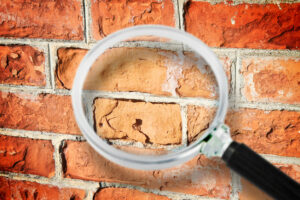
Harsh winter conditions often destroy unprotected masonry. If the weather destabilizes your walls, it can harm your home. These simple steps done by professionals like New England Masonry and Restoration can help reduce headaches and costly masonry repair jobs.
Apply a sealer to prevent the consequences of the thawing and freezing cycle
Masonry consists of porous materials; bricks and mortar absorb moisture like sponges, expanding and contracting as they freeze and thaw. This ongoing process contributes to destabilization, resulting in cracking, loosening of bricks, or even complete collapse. These problems can be avoided by applying a special masonry sealer to penetrate the pores and prevent the consequences of the thawing and freezing cycle.
Protect your masonry with polythene or hessian
Additionally, if temperatures are expected to reach a superficial level, you can use insulation boards and heated enclosures.
Rendering, plastering, and screeds
If you want to avoid experiencing problems, these finishes must be applied correctly in the first place on masonry construction. No screeding or plastering should occur if the building is frosty and the outdoor temperatures are below 2 degrees Celsius. If internal heating is used to warm the building and make it suitable for the work, you must ensure that it does not produce excessive vapor.
Masonry And Winter Weather: how to avoid common problems
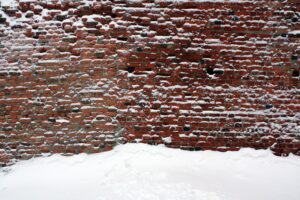
Mother Nature tends to be unpredictable, no matter how many winter weeks a groundhog predicts. Dropping temperatures will undoubtedly affect the Connecticut masonry that makes up your property.
How do you know your masonry is affected by the cold weather?
If a material such as brick or mortar contains moisture, it can freeze. The freeze-thaw cycle creates an internal expansion and contraction effect that eventually breaks the brick and mortar. Most stones are porous and absorb water. When water freezes in stone, the stone shrinks. As the water melts and evaporates, the stone expands again. This is a natural reaction, and it is what makes the material adaptable to different weather conditions.
In extreme weather, this porosity can pose a problem. Repeated freeze and thaw cycles create holes in the stone, allowing it to absorb, freeze, and thaw more water. Over time, this cycle causes the masonry to deteriorate.
Repair or replacement schedule
If you notice cracks in the masonry, you have two options: repair them or replace the masonry. Even minor cracks can cause severe damage if left unchecked. You can avoid additional problems and get a seamless look by plugging the cracks. Replacing the brickwork restores the structural strength and prevents future demolition.
5 Common Signs Your Commercial Building Needs Masonry Restoration
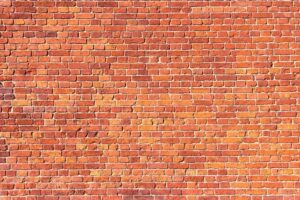
When rehabilitating/consolidating the masonry structures, the following factors must be considered: the age of the construction, the type of masonry, and the connecting material between the masonry elements: dry masonry, mortars with binders (clay type, lime, cement mortar), the structural system (unreinforced masonry, reinforced masonry, confined masonry), the type of foundations, etc.
Excluding the degradation of structures because of design and execution mistakes, the main causes of damage to the masonry can be:
- lack of maintenance of the construction and the appearance of the condensation phenomenon
- exceeding the bearing capacity of the foundation ground in case of new constructions adjacent to the existing construction
- improper exploitation (exploitation loads above typical values);
- uncontrolled interventions (suppression of structural elements)
- dynamic actions on the foundation ground
- seismic action
Common signs your commercial building needs masonry restoration include:
- The appearance of cracks in the masonry walls resulting from the degradation of the foundation ground
- Cracked walls caused by horizontal actions, following the direction of the diagonals, because of exceeding the stretching capacity and cracking at the base of the walls, caused by horizontal actions
- The appearance of cracks at the intersections of the walls because of the lack of connections to ensure spatial cooperation
- The appearance of oblique cracks above the gaps of doors and windows because of the seismic action
- The dislocation of masonry in areas with high concentrations of tension.
Get the help of experienced masonry restoration Connecticut contractors for the desired results, and long lasting qualities.
Concrete Restoration in Connecticut – How an Expert Avoids the Trickiest Issues
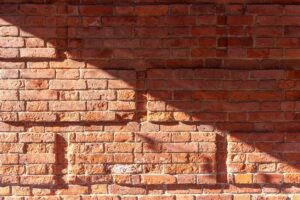
Concrete restoration in Connecticut can be done easily and efficiently with the help of experienced professionals. Concrete restoration is fixing deteriorated concrete structures. If you own a house or a commercial building, concrete often plays a major role in the sustainability and appearance of the whole building.
Concrete restoration may be needed on sidewalks, driveways, flooring, or other places. One of the main reasons why concrete restoration can be a good idea is because maintenance and upkeep costs much less than building the structure from scratch. Concrete restoration not only fixes structural damages, but also improves the general appearance of a building.
Connecticut masonry experts know how important it is to look beyond the visible damage and find the best approach to fix structural concerns. One of the common mistakes is trying to fix cracks in concrete with epoxy. Experts know that it is essential to address the main issue, the weak zone, instead of merely filling the crack with epoxy.
Another important fact to note here is that you cannot simply use the same repair methods over and over again because each problem needs to be solved in a different way.
3 Skills That a Connecticut Masonry Specialist Must Have
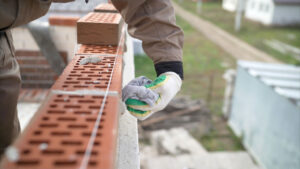
Whether you are living in a house or in an apartment, which is an older or newer construction, cracks may appear in the walls and they must be remedied, because, in addition to an unaesthetic appearance, they can lead, in time, to other problems.
There are several reasons why cracks appear in interior or exterior walls, as well as in ceilings, including reactive soils, excavation works in the area, water damage, degradation of construction materials, etc. Some cracks are superficial and can be fixed very easily, while others are deeper and can be more difficult to correct.
A Connecticut masonry specialist can help you at any time with the necessary restoration work.
In order to perform quality work, a masonry specialist must have 3 essential skills, psychomotor, sensory and physical: manual dexterity, visual acuity and three-dimensional perception.
In addition, the process of executing the masonry restoration works requires the application of the protection and security norms. The works are executed on the basis of strict procedures, respecting the indications of superiors and the norms of safety and health at work. The quality of the masonry restoration works results from the strict observance of the technologies, the masonry specialist being obliged to meet the requirements of the project.
Last but not least, they must know perfectly the working materials and technologies and be able to develop proposals to improve a masonry restoration project.

















